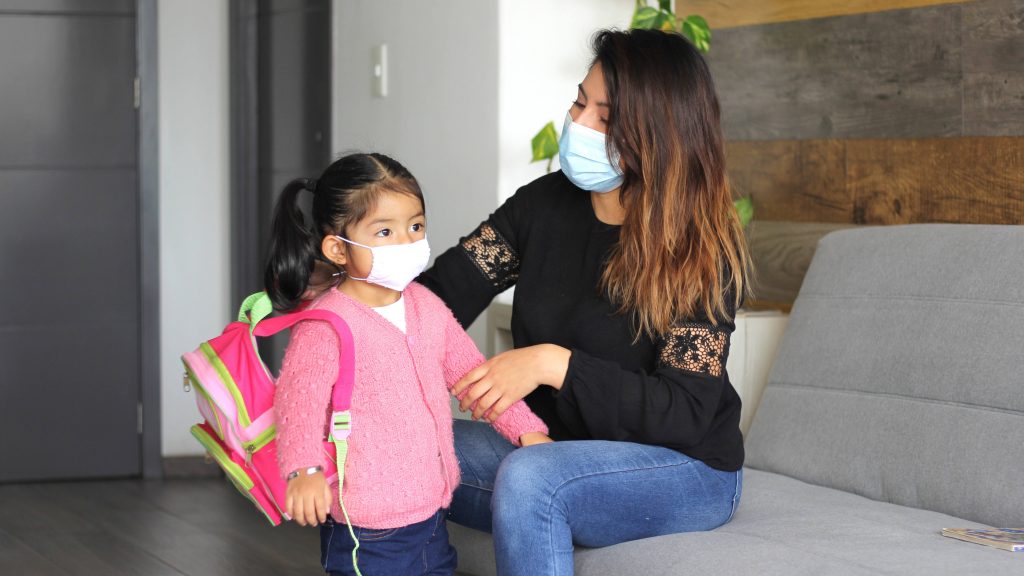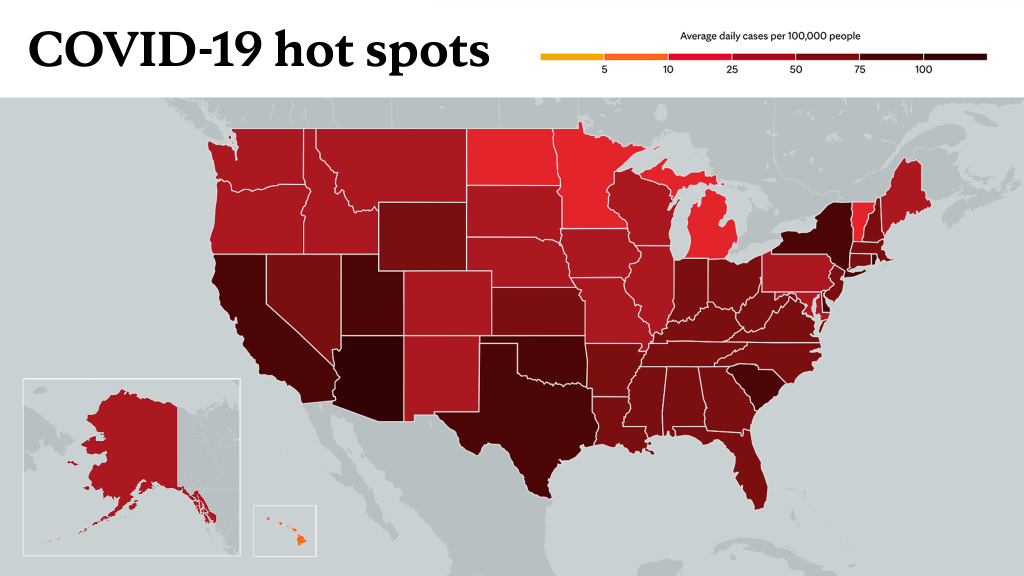
The Food and Drug Administration (FDA) has authorized the emergency use of two COVID-19 vaccines in the U.S. The Pfizer/BioNTech vaccine is approved for people over 16, and the Moderna vaccine is approved for people over 18. While both vaccines have proven to be safe and effective in adults, the pediatric population is not yet eligible to be vaccinated for COVID-19.
Watch: Dr. Nipunie Rajapakse answers questions about the COVID-19 vaccines and kids.
Journalists: Broadcast-quality sound bites with Dr. Rajapakse are available in the downloads. Please courtesy, "Nipunie Rajapakse, M.D./Pediatric Infectious Diseases/Mayo Clinic."
In this Q&A, Dr. Nipunie Rajapakse, a Mayo Clinic pediatric infectious diseases physician, will answer some of the most common questions she's hearing from parents when it comes to kids and COVID-19 vaccines:
Why are most children not yet eligible to be vaccinated for COVID-19?
The reason for this is that vaccine manufacturers have not yet completed clinical trials for COVID-19 vaccines in pediatric age groups. In other words, no COVID-19 vaccine will be approved for use in children until it has been demonstrated to be safe and effective in that age group. Those are the trials that are going on now. Now that the adult trials are well underway and continue to be in progress, vaccine manufacturers have extended enrollment to the lower age limits ― down to 12 ― for both vaccines.
The process that's being followed here is typical of what is done when studying a vaccine. Most vaccines will generally be tested in healthy adult populations initially. After that, we start looking at maybe more vulnerable populations, like children or pregnant women. Obviously in this situation, given the COVID-19 pandemic and the emergency nature, they are quite rapidly including other groups in the trials, so that we can get the vaccine out to as many people as possible to help end the pandemic.
When will COVID-19 vaccines be available for use in children?
In the coming months, we will hear about the results from the trials as they enroll and study these COVID-19 vaccines in each pediatric group. We have no real reason to think that the results will be significantly different than what we have seen in adults. But, obviously, children are a unique population. And, so, that's why we need to ensure that they're studied in pediatric age group. We need to demonstrate and prove that they are in fact safe and effective in that age group. Based on the ages that are now being enrolled in the trials, it is likely that the approval for use in children over 12 will come first before approval for use in younger age groups.
Until children are approved to be vaccinated for COVID-19, should eligible adults who live with children be vaccinated for COVID-19?
Yes. It is very helpful for anyone who becomes eligible to be vaccinated for COVID-19 to be vaccinated. The reason for that is that we are trying to achieve herd immunity to try to slow down and stop the pandemic. This refers to when you have enough of a population that is immune to an infection that the infection cannot easily jump from one person to the other. Herd immunity slows down transmission, so even if children are not yet eligible for vaccination, if the adults around them are vaccinated, that provides them with some protection. In that case, they are less likely to be exposed to COVID-19. Until children are approved to be vaccinated for COVID-19, we certainly encourage any adults who are eligible and live with children to be vaccinated for COVID-19.
What else can young people do to protect themselves from COVID-19?
The things that we're recommending for everyone, including children, in terms of protecting themselves from COVID-19 include staying home if you're feeling sick. This helps protect everyone around you from getting ill. Also, wash your hands well for 20 to 30 seconds, using either soap and water or an alcohol-based hand rub. And practice physical distancing and wear a mask in public places. We know that these measures, especially when used together, are very effective in decreasing the transmission of COVID-19. And we encourage everyone to continue to follow those recommendations, even as COVID-19 vaccines are being rolled out.
_____________________________________
For the safety of its patients, staff and visitors, Mayo Clinic has strict masking policies in place. Anyone shown without a mask was either recorded prior to COVID-19 or recorded in a nonpatient care area where social distancing and other safety protocols were followed.
Information in this post was accurate at the time of its posting. Due to the fluid nature of the COVID-19 pandemic, scientific understanding, along with guidelines and recommendations, may have changed since the original publication date.
For more information and all your COVID-19 coverage, go to the Mayo Clinic News Network and mayoclinic.org.
Learn more about: Tracking COVID-19 and COVID-19 trends








